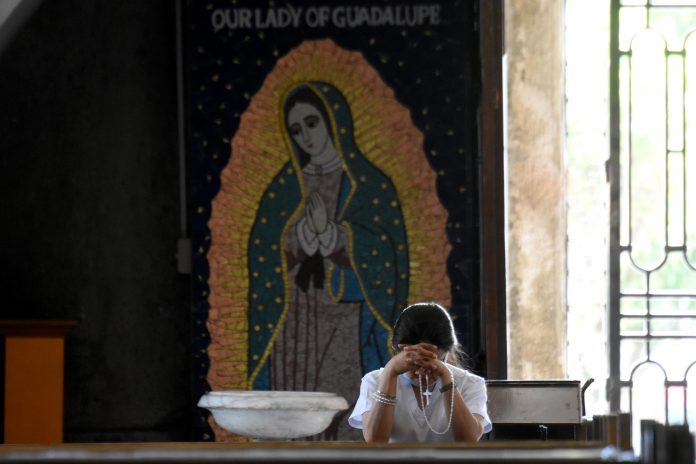May we all reflect upon the virtue of holiness so needed in all of us in these trying times.
The author of Mark – in the story of the rich young man (Mk 10: 17-22) — is quite explicit in answering the question of the constitution of holiness. The reply of Jesus is clear, that it was not enough for us to obey the commandments and by implication, to merely observe the ritual of the Church’s sacraments.
As Christians, we must be mindful not only of our obligations to God for ourselves, but also of our obligations to God insofar as being responsible for others is concerned.
This conclusion is unmistakable in our Lord’s allusion to the people in the social periphery, for whom our charity becomes a condition for authentic Christian discipleship — a gentle reminder of the greater mystery of the Church as the People of God as a community of individuals not simply occupied with personal worship, but solidly grounded in the awareness of a spiritual koinonia that binds all of us together in a common mission towards God.
Without this sense of communion, then indeed for us, we “lack one thing,” and being the Church becomes only an illusion.
The framework of growth in the Christian life may thus refer to “obedience of the commandments of God and the Church” and “reception of his grace through the sacraments” as an essential foundation to it, but not wholly identical to it.
We often make the mistake of equating “compliance” with holiness itself, in much the same way we only try to meet “minimum requirements” in passing through our secular existence.
According to Edward Schillebeeckx, the seven sacraments are the principal ways by which the Church communicates the divine reality, and through which we in turn respond in discipleship and worship.
Thus, our Christian imperative is to nurture a continuing spiritual dialogue with God through the Christ, and in the Spirit in which we actively respond to an offer to love.
Such offers which are manifested through Sunday homilies, prayerful reading of Scripture and other spiritual formation activities, may fall on blind eyes, deaf ears and mute mouths, if our response is sorely lacking.
Listening and obedience must lead us to a deeper consciousness of grace, to a broader understanding of faith and the necessity of virtue, and to a more effective praxis that seeks only the just development of the People of God. Following the commandments and observing the sacraments, becomes for us, our “school of love.” (Ps 1: 1-3)
And what greater model of holiness can there be, other than our Lord Jesus Christ? Holiness entails reliving in our lives his Paschal mystery as he sought to fulfill the “kingdom of God.” So shall we also seek to achieve the reign of the Father, by living as he lived, by serving as he served, by praying as he prayed, and by dying as he died, with the hope of being united with the Spirit forever. Truly then, he is the Way, the Truth and the Life! (Jn 14: 6)
On holiness, I wish to emphasize three more points, which will be further explained in the second part of this essay:
- Holiness is not only for a so-called “select few;” we are all meant to become holy. It is not merely an invitation or an option, but a call and challenge to be one.
- Holiness does not only happen under uniquely fateful circumstances with “dramatic” outcomes; holiness happens in the inconspicuous daily actions of being “fully human”.
- Holiness calls for a radical shift of mindset from self-centeredness to selflessness; and through our holy actions, the light and power of God is allowed to shine.
Brother Jess Matias is a professed brother of the Secular Franciscan Order. He serves as minister of the St. Pio of Pietrelcina Fraternity at St. Francis of Assisi Parish in Mandaluyong City, coordinator of the Padre Pio Prayer Groups of the Capuchins in the Philippines and prison counselor and catechist for the Bureau of Jail Management and Penology.
The views expressed in this article are the opinions of the author and do not necessarily reflect the editorial stance of LiCAS.news.









